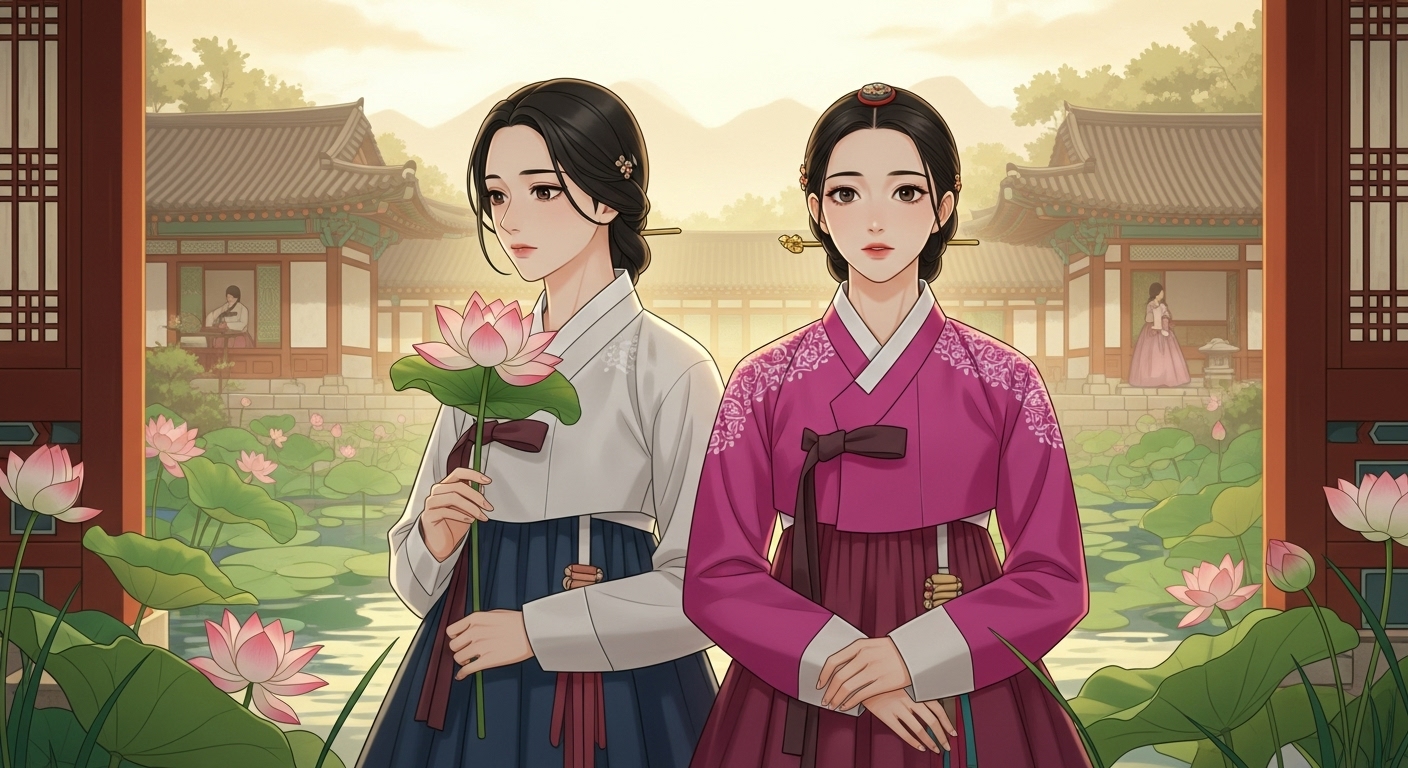
Janghwa-hongryeon (薔花紅蓮) is a representative classical novel handed down from the Joseon Dynasty and a representative traditional Korean tale.
The story's core is the conflict and tragedy between a stepmother and her children from her previous marriage, and the resulting resentment and revenge.
Plot Summary
• Bae Mu-ryong (or Bae Jwa-su), who lived in Cheolsan, Pyeongan Province, had two daughters, Janghwa and Hongryeon, from his previous marriage.
• When his previous wife died, Bae Mu-ryong remarried Heo, and Heo severely abused Janghwa and Hongryeon after giving birth to their sons.
• Heo falsely accused Janghwa and drowned her in a pond, and Hongryeon also died following her older sister.
• After the two sisters died unjustly, they became vengeful spirits and appealed to the local government (busa).
• The newly appointed vice-minister reveals the truth of the incident, punishes the stepmother and her son, and restores the honor of the sisters.
Meaning and characteristics
• This story deals with ethical issues within the family, such as the conflict between the stepmother and her ex-wife's children, the irresponsibility of the head of the household (father), and the contradiction of the second wife system.
• The structure of the conflict between good and evil is clear, and in the end, good triumphs.
• There is also a theory that it is based on an incident that actually occurred in Cheolsan, Pyeongan Province in the 10th year of King Hyojong's reign in Joseon.
Modern reinterpretation
• This story was also reinterpreted in the film <Janghwa, Hongryeon> (2003), presenting a new interpretation that included modern themes such as psychological fear, guilt within the family, and the oppression of women.
Summary
Janghwa, Hongryeon is a classic novel and traditional fairy tale that depicts the resentment and revenge of two sisters who died unjustly due to abuse and false accusations by their stepmother, and is a representative work of Korean family narratives.
'노벨리스트' 카테고리의 다른 글
| What kind of animals were dinosaurs? (1) | 2025.07.22 |
|---|---|
| Grit (0) | 2025.07.21 |
| Ongojishin (溫故知新) (0) | 2025.07.20 |
| What is Stoicism? (0) | 2025.07.20 |
| Calligraphy (0) | 2025.07.19 |



